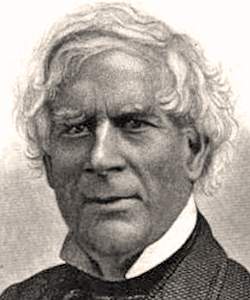Thurlow Weed, Republican Party (American National Biography)
Scholarship
Weed had always disliked slavery and favored its containment; he discounted southern threats of secession and saw only advantages in attacking northern compromise Democrats as prosouthern and proslavery. Thus he disliked the Compromise of 1850 and welcomed the revival of sectional issues with the Kansas-Nebraska Act of 1854. Although eager to see antislavery Democrats and Whigs united in the new Republican party, Weed blocked its full organization in New York until Seward had been safely reelected. To reduce the new party's apparent ties to the Whigs, Weed gave up the editorship of the Evening Journal from 1855 to 1858, although he remained active behind the scenes. He discouraged Seward from seeking the Republican presidential nomination in 1856, fearing a loss. While Seward generally respected Weed's advice as astute and well meant, others were less understanding. Greeley, convinced that Weed was unfairly squelching his own ambitions for office, broke with both Seward and Weed. Former Democrats among the Republicans felt Weed favored former Whigs over them. Dissension among New York Republicans was one factor that cost Seward the presidential nomination in 1860, despite Weed's best efforts in his behalf.
Field, Phyllis F., "Weed, Thurlow," American National Biography Online, February 2000, http://www.anb.org/articles/04/04-01194.html.
Thurlow Weed, Civil War (American National Biography)
Scholarship
Abraham Lincoln made Seward his secretary of state and consulted Weed regularly on patronage matters but remained independent in his assessment of both men and issues. Weed differed with Lincoln over rejecting concessions on slavery during the secession crisis, the timing of the Emancipation Proclamation (which he felt should have been delayed until more popular with the public), and the firing of General George B. McClellan, and he was disturbed by the unpopularity of the draft. Yet during the war he helped organize recruiting in New York City, acted as a military supplier in obtaining war goods (on commission), and used his influence when called upon by the president. He claimed, for instance, to have arranged a commission for the son of James Gordon Bennett, the editor of the New York Herald, in exchange for a lessening of criticism of the administration. During the winter of 1861-1862, Weed traveled in England and France, promoting favorable press coverage of the North and advising Seward on diplomatic matters, especially the necessity of releasing James Mason and John Slidell, Confederate commissioners who had been removed from the British mail packet Trent.
Field, Phyllis F., "Weed, Thurlow," American National Biography Online, February 2000, http://www.anb.org/articles/04/04-01194.html.



